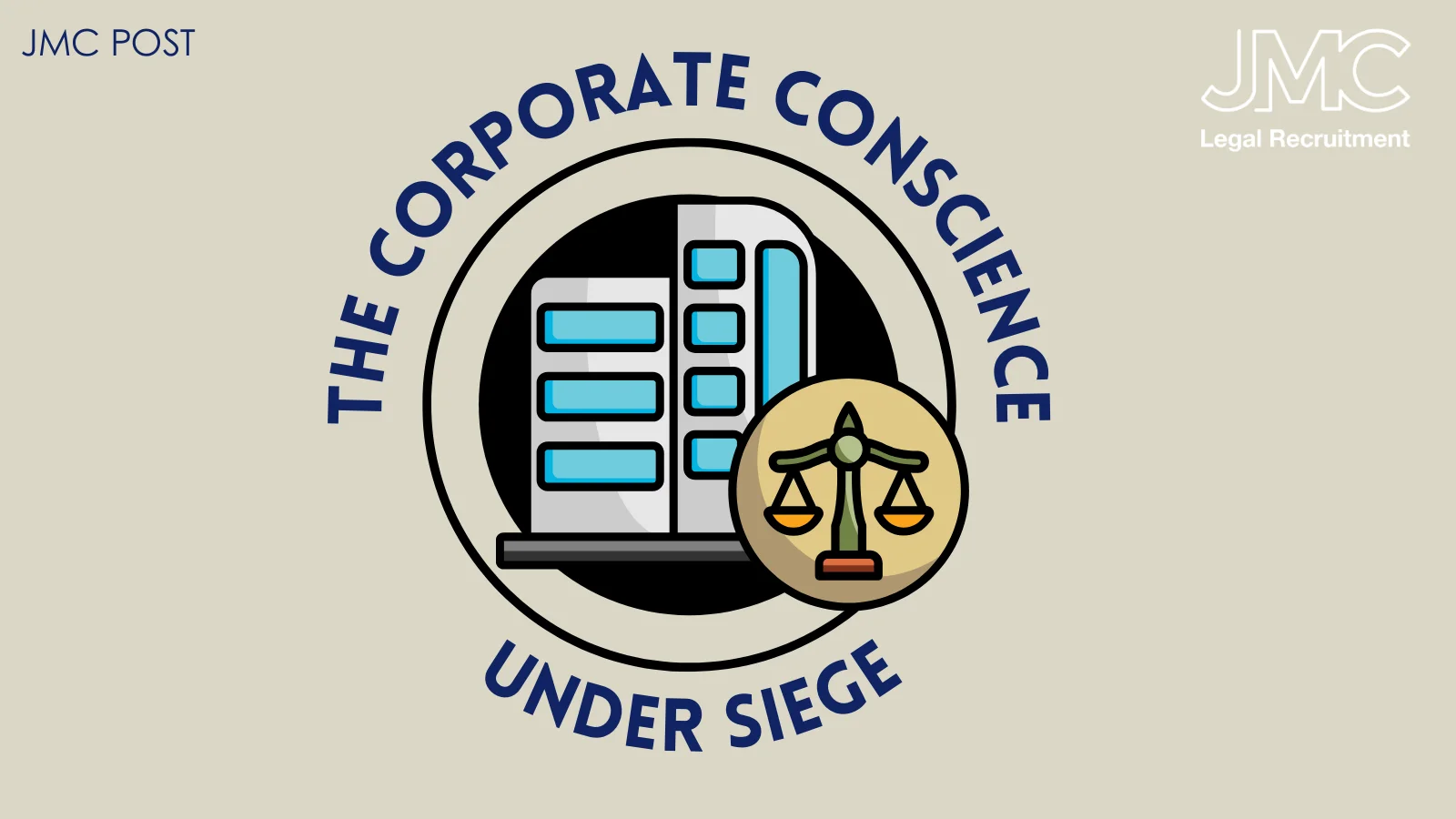
What Do Top In-House Legal Teams Prioritise When Hiring?
15 Jul, 20253 minutes
What Do Top In-House Legal Teams Prioritise When Hiring?
Cultural Fit Now Trumps Traditional Credentials, Say Legal Hiring Managers
Having hired for countless in house legal jobs over the years, each hiring manager tends to have their own key priority when seeking additions to their teams. When I first started in in house legal recruitment around 4 years ago, I was surprised at the amount of hiring managers who mentioned 3-5 years minimum of Private Practice experience being a top hiring priority. It seemed at the time that having ‘ran the gauntlet’ in a law firm puts you in the best position to add value to an in house legal team. However, judging by the results of a poll we recently ran, things seem to have changed…
When hiring for your legal team, what do you value the most?
The results are telling (123 participants):
• Cultural alignment – 47%
• In-house legal experience – 27%
• Industry-specific knowledge – 22%
• Private practice background – 4%
Cultural Fit (47%)
Nearly half of respondents placed culture fit at the top of their criteria. This reveals a fundamental truth: for in house legal teams, team cohesion and shared values are non-negotiable. Whether you're mentoring junior lawyers, steering strategic decisions, or integrating with business units, you each represent not just the legal team but the company’s ethos.
It’s no secret that the legal industry is undergoing a culture shift!
Tip for GCs: When crafting job specs for an in house lawyer vacancy, highlight your team’s mission, leadership style, and core values. During interviews, probe cultural fit through real scenarios; how does the candidate handle conflicting priorities? Mentor junior lawyers? Or challenge the status quo?
In-House Experience (27%)
Coming second on the list is direct in house legal experience. That suggests a preference for candidates who’ve already navigated the shift from firm to counsel, and are therefore “plug-and-play” hires.
With smaller budgets than law firms, in house legal teams typically want people who can hit the ground running and grasp business complexity fast. Experience within an organisation improves your ability to address legal issues across divisions, from privacy to IP, and deliver business-aligned counsel.
Tip for GCs: Define which in house legal experience matters most for you, is it startup, international or highly regulated sectors? From there, refine job titles and messaging accordingly. Socialise internal success stories of in house legal hires to show tangible value to any potential employees.
Industry-Specific Knowledge (22%)
Roughly a quarter said industry-specific knowledge matters, unsurprising in highly regulated industries (e.g., fintech, energy, healthcare). Such insight can be pivotal in order to anticipate regulatory shifts and translate legalese into commercial advice.
Tip for GCs: If industry insight is non-negotiable, ensure it’s prominent in your in house lawyer vacancy spec. Create a path for high-potential hires without this background, offer intensive onboarding, mentoring, or client shadowing to broaden your hiring pool.
Private Practice Expertise (4%)
Only a handful of our participants seemed to prioritise law firm pedigree.
Modern in house legal culture tends to prize mental versatility, not law firm pedigree. Firms may train lawyers for litigation or other niches but this doesn’t always translate to handling the diverse day-to-day needs of a business.
As budgets tighten, in house legal teams demand counsel who add value not just on technical legal skills, but risk management, communication, and business partnership.
Tip for GCs: Don’t over-emphasise BigLaw pedigree unless it serves a niche purpose (e.g., litigators to lead high-stakes cases). Prioritising it may narrow your candidate base and overlook talent who better connect with your culture.
Final Thoughts
In house legal teams are people-first organisations. Hiring isn’t just about legal acumen, it’s about trust, values, and working styles.
When your interviews, onboarding, and in house legal training contract opportunities centre on how people work together and less on formal qualifications you can build resilience, agility, and deeper integration with the wider business.
For GCs aiming to build forward-looking in house counsel functions:
Smart, culture-centred hiring strategy not only builds a capable legal team but it also creates a team that lives the company’s purpose and scales with its ambitions. I have had countless experiences where hiring managers have missed out on securing highly talented in house legal professionals due to an over-prioritisation of law firm background. However, it is promising to see from our poll results that the shift seems to be well underway…
Related Articles
[Challenges When Hiring In-House Legal Counsel]
[How to Hire Your First In-House Lawyer (And Get It Right)]
[Should I work as An In-House Lawyer?]


